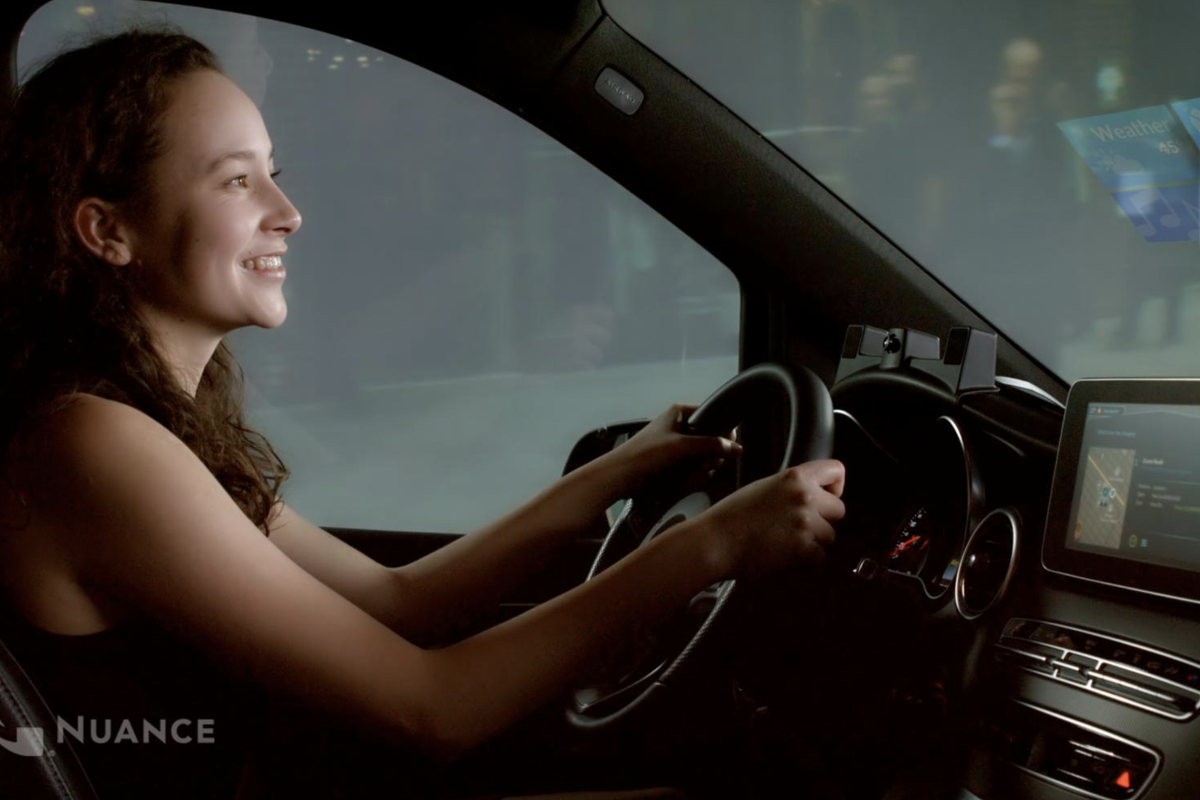
Nuance
Your next car will understand your mood and spot when you’re tired
In-car voice assistant by Nuance shown off at the CES technology show

In-car voice assistant by Nuance shown off at the CES technology show
The next generation of in-car voice assistants will be able to spot when you're tired and even adjust how they speak based on your mood.
That is the goal for Nuance, an artificial intelligence company which used the CES technology show in Las Vegas this week to show off its new driver assistance system.
Read More:
GearBrain was shown a demonstration of the system, which uses a voice assistant called Dragon. When the Nuance employee yawned while sat behind the wheel of a car on the CES show floor, the assistant spotted this, then sounded an alert and displayed a message on the car's infotainment system.
A second yawn prompted the assistant to speak out-loud, saying: "You seem a bit sleepy. Drive carefully, please". After a third yawn in quick succession, the system upped its concern, saying: "Hey, you're looking really sleepy. Do you want ti play a game to keep you from falling asleep?"
If the driver's signs of fatigue continue, the fourth yawn causes the system to say: "Hello! Wake up! You need to a break. Want to stop at the next gas station?"
Nuance says it has designed the system to interact with a sleepy driver in the same way their partner, friend, or any other passenger might. It starts off with a gentle suggestion, then ramps this up to tell the driver they need to stop and get some rest.
The system uses a camera mounted on top of the steering column to read the driver's face and spot when they are yawning and showing signs of tiredness.

The camera can also help the assistant understand the driver's mood, and whether they are happy, sad, angry or agitated. If the driver is identified as being in a good mood, the system will speak more and in a light-hearted way. For example, when asked about the weather forecast, the assistant will say something like: "Yep, it's rain, rain and more rain today."
However, if you are in a bad mood and ask about the potential for rain, the system will deliver a straight and simpler answer, like: "There will be a very high chance of rain today." Similarly, if the driver is navigating a complex intersection, the assistant will deliver the shortest possible answer to avoid distracting them.
All of this is processed locally, Nuance says, without interacting with the cloud. Of course, the weather forecast is pulled from an internet connection, but the driver's mood is not uploaded. Instead, the AI works this out locally using the car's own processor.
Voice biometrics are used to work out who in the car is talking and offer a level of security. For example, when the driver asks the assistant to transfer some money from their bank account, it asks them to read the sentence: "My voice is my password".
However, if a passenger - or someone else driving the car - tries this, the system will recognize they are the wrong person, and stop the transaction from taking place. Another example is how this system can prevent disruptive children from hijacking the navigation system in a bid to drive to Disneyland.
Nuance hopes to have a system like this installed in vehicles in the next two to five years, and is working with auto companies now to make this demonstration a reality.
GearBrain Compatibility Find Engine
A pioneering recommendation platform where you can research,
discover, buy, and learn how to connect and optimize smart devices.
Join our community! Ask and answer questions about smart devices and save yours in My Gear.
